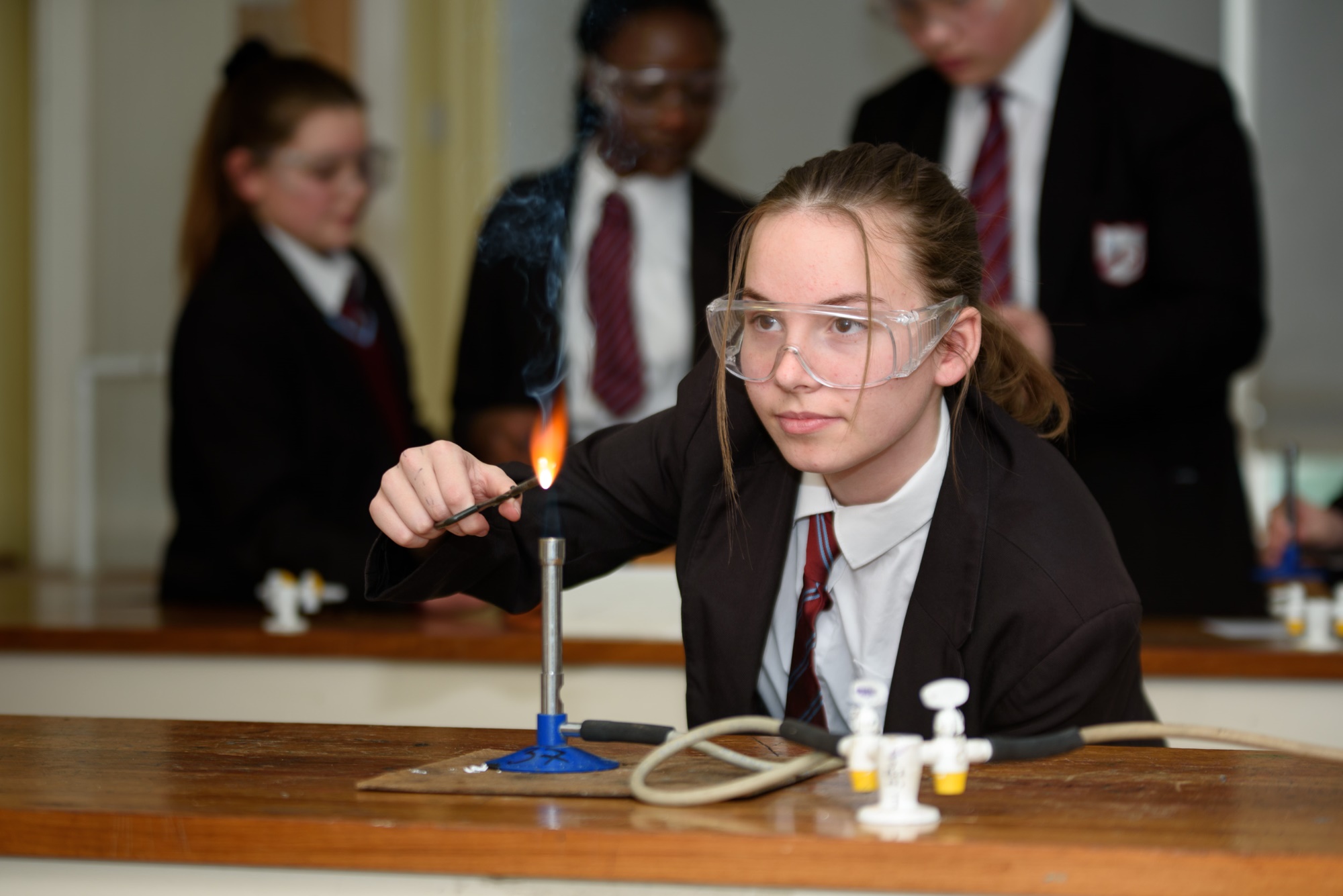Science
Science is taught by a team of dedicated, enthusiastic and well-qualified teachers. Expectations are high and excellent standards are rigorously applied. The teaching staff are supported by experienced technical staff.
The Science curriculum is designed to equip students with the understanding necessary to explain the world around them. Each year, our schemes of learning are designed to build upon previous knowledge and lay the foundations for the year ahead. We aim to provide a curriculum that allows all students to develop a fundamental understanding of the universe and how it works, but also to foster the same enthusiasm and love of learning that drives the wider scientific community.
Key Stage 3
Our Year 7 and 8 provision is underpinned by the AQA COLLINS KS3 program of study.
The course focusses around 10 Key Pathways – Organisms, Ecosystems, Genes, Matter, Reactions, Earth Forces, Electromagnets, Energy and Waves that criss-cross between Biology, Chemistry and Physics. Working scientifically, maths and literacy practice is also embedded. All questions are ramped up to challenge even the most able students.
Key Stage 4
The AQA GCSE Combined Science course aims to develop knowledge and understanding of Science and how this is related to the everyday phenomena that students have experienced. Students learn to explain these and the observations made during experimental work. A great deal of emphasis is based on thinking and working scientifically and the skills required to do so are developed through opportunities to complete required practical activities. Students learn to plan investigative approaches, collect data and analyse this in order to give conclusions.
 STEAM
STEAM
The Science department offers a wide variety of STEAM activities. This provides students who are passionate about science or considering a career in a STEAM based environment with invaluable enrichment opportunities.
The science club runs at lunchtime, led by Science staff during the Autumn and Spring term. Students will get to experience a variety of experiments and activities.
There will be various curriculum and enrichment trips this year for every year group, including Whipsnade zoo, The Big Bang fair and the Natural History Museum.

Golden threads
The golden threads are 5 specific concepts that are visible throughout our Science curriculum as it spirals through Year 7 to 11. These core concepts are particles, energy, cells, forces and interdependence.
| BIOLOGY | CHEMISTRY | PHYSICS | |
|---|---|---|---|
| Cells | Atomic Structure and the Periodic Table | Energy | |
| Organisation | Bonding, Structure and Properties of Matter | Electricity | |
| Infection & Response | Quantitative Chemistry | Particle Model of Matter | |
| Bioenergetics | Chemical Changes | Atomic Structure | |
| Homeostasis and Response | Energy Changes | Forces | |
| Inheritance, Variation & Evolution | The Rate and Extent of Chemical Changes | Waves | |
| Ecology | Organic Chemistry | Magnetism and Electromagnetism | |
| Chemical Analysis | Space (Triple only) | ||
| Using Resources |
Post 16 Science
AQA Biology A
Students are taught to develop relevant practical skills alongside essential knowledge and understanding of a range of biological concepts and scientific methods. Biological mathematics and problem-solving skills are fully integrated into the teaching and learning.
OCR Chemistry A
Students are taught a content-led course covering physical, inorganic & organic chemistry along with analytical techniques. Teaching of practical skills is integrated with the theoretical topics and they’re assessed both through written papers.
OCR Physics A
Students are taught to build on their knowledge of the laws of physics, applying their understanding to solve problems on topics ranging from subatomic particles to the entire universe. They also have the opportunity to develop all the relevant practical skills.
Subject Leader, Miss L White
